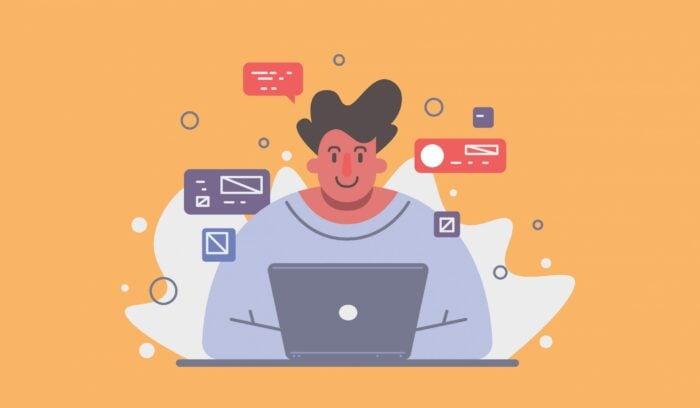How to Become a Full Stack Developer: Essential Education & skills Guide
Are you eager to start a rewarding career at a university, college, or school as a full stack developer in education technology? the demand for tech-savvy professionals in edtech is rising, as educational institutions increasingly rely on robust digital platforms to support learning and administration. This complete guide will walk you thru everything you need to know—from educational requirements to the most sought-after skills—to help you become a triumphant full stack developer in the education sector.
What is a Full Stack Developer in Education Technology?
A full stack developer is a versatile professional skilled in both front-end and back-end web technologies. In the context of education technology, full stack developers build and maintain digital solutions used by schools, colleges, and universities. Their work supports e-learning platforms, student facts systems, campus management software, and other critical edtech applications.
- Front-end development: Designing interactive user interfaces for students, teachers, and administrators.
- Back-end development: Creating and maintaining databases, servers, and application logic.
- integration: Ensuring seamless interaction between digital educational tools and existing systems.
Why Choose a Career as a Full stack Developer in EdTech?
Working as a full stack developer in the education sector offers unique opportunities and benefits:
- Make a Difference: Develop tools that enhance learning experiences and improve student outcomes.
- Job security: As education continues to evolve digitally, skilled EdTech professionals are in high demand.
- Continuous learning: Stay on the cutting edge of technology,working with the latest programming languages and frameworks.
- Collaborative Environment: Work closely with teachers, researchers, and administrators to craft impactful solutions.
- Diverse Career paths: Access opportunities in web development, learning management systems, data analytics, and more.
Essential Education for Becoming a Full Stack Developer
formal education is a key stepping stone to kickstarting your journey as a full stack developer in education technology. Here’s what most employers in universities, colleges, or schools seek:
Bachelor’s Degree Options
- Computer Science
- Software Engineering
- Information Technology
- Related fields (e.g., Mathematics, Data Science)
While a degree is often preferred, some schools and districts also value self-taught developers with exceptional portfolios and project experience.
Certifications and Bootcamps
- Full Stack Web Development certifications (from recognized institutions)
- Specialized EdTech certificates
- Online coding bootcamps or nano degree programs
These alternatives can be notably beneficial for those looking to change careers or enter the field quickly.
Crucial Technical skills for Full Stack Developers in Education Technology
To excel as a full stack developer in EdTech, you’ll need a balanced mix of technical competencies:
Front-End Skills
- HTML, CSS, JavaScript
- modern JavaScript frameworks (React, Angular, Vue.js)
- Responsive design principles
- Accessibility best practices (ADA compliance is critical for school platforms)
Back-End Skills
- Server-side languages: Node.js, Python, Java, Ruby, or PHP
- Working with frameworks like Express.js,Django,spring,or Laravel
- restful API creation and integration
Database Management
- SQL databases (MySQL,PostgreSQL,SQL Server)
- NoSQL databases (MongoDB,Firebase)
devops & Deployment
- Version control (Git/GitHub)
- Containerization (Docker)
- Continuous integration and deployment (CI/CD)
Additional tech Skills
- Security fundamentals (meaningful in protecting student data)
- Cloud services (AWS,google Cloud,Azure)
- Familiarity with learning Management systems (LMS)—Moodle,Canvas,Blackboard
Key Soft Skills for Success in EdTech Development
Beyond technical expertise,full stack developers in education technology need strong soft skills for effective collaboration and project delivery:
- Problem Solving: Address and resolve technical challenges efficiently.
- Communication: Translate complex tech concepts into everyday language for educators and administrators.
- Teamwork: Collaborate with cross-functional teams, including teachers, IT staff, and project managers.
- Adaptability: embrace new technologies and update existing systems as educational needs evolve.
- Empathy: Understand the needs and challenges of students and educators to design user-friendly solutions.
Steps to Becoming a Full Stack Developer in Education Technology
-
Learn the Fundamentals:
- master core programming languages and front-end/back-end concepts.
-
Build Real-World Projects:
- Develop portfolio projects such as LMS modules, educational apps, or student data dashboards.
-
Engage with EdTech Communities:
- Join forums, attend educational technology conferences, and participate in hackathons.
-
Tailor your Resume and Portfolio:
- Highlight projects related to education technology and full stack development.
-
Apply for Entry-Level Roles:
- Seek internships, junior developer positions, or freelance gigs at schools, universities, or edtech companies.
-
Continuous Professional Development:
- Stay updated with the latest in EdTech and software development trends.
Benefits of Working as a Full Stack Developer in Educational Institutions
- Stable Work Environment: Universities and schools frequently enough provide competitive benefits and work-life balance.
- Growth Opportunities: Opportunities for career progression into lead developer or IT management roles.
- Mission-Driven Work: Contribute to the future of education and society at large.
- Cutting-Edge Projects: Collaborate on research-driven and innovation-focused educational initiatives.
Practical Tips for Aspiring EdTech Full Stack Developers
- Start Volunteering: Offer your development skills to local schools or educational nonprofits to gain relevant experience.
- Document Your Journey: Share your EdTech projects on GitHub or a personal website.
- Network: Connect with professionals in the EdTech field through LinkedIn and university career centers.
- Stay Informed: Regularly follow blogs, podcasts, and research papers related to both software development and education technology.
- Seek Mentors: Engage with experienced developers who can provide guidance and feedback.
Conclusion
Becoming a full stack developer in education technology is both a challenging and deeply rewarding career path. With educational institutions embracing digital transformation, your skills can make a significant impact on the learning journey of countless students. By mastering technical expertise, nurturing soft skills, and gaining practical experience, you’ll be well on your way to landing a fulfilling role at a university, college, or school. Start your journey today toward a vibrant career at the intersection of technology and education!

